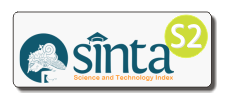Does Profit Maximization Assumption in Economics Comply with Shariah? Evidence from Theoretical and Empirical Findings
DOI:
https://doi.org/10.14421/grieb.2022.101-06Keywords:
Profit Maximization, Maqasid Shariah, Environmental, Social AspectAbstract
The objective of this paper is to discuss the issue of profit maximization from a shariah point of view. The study is very relevant, especially in the current development of Islamic economics. Profit maximization is the central issue in conventional economics and the implication is that all firm decisions must be intended to realize a profit. This paper uses a qualitative approach to answer the main research question. Using a comprehensive study on the Al-Quran and previous empirical findings, the study reveals that profit maximization is still accepted, but not as a single objective. Islamic economics must use comprehensive objectives that not only profit but also maqasid shariah maximization, including environmental, and social aspects.
References
Ahmed, I., Nawaz, M. M., Danish, R. Q., Usman, A., & Shaukat, M. Z. (2017). Objectives of Islamic banks: A missive from mission statements and stakeholders’ perceptions. Journal of Islamic Accounting and Business Research, 8(3), 284–303. https://doi.org/10.1108/JIABR-08-2014-0028
Akbar, T., & Siti-Nabiha, A. K. (2021). Objectives and measures of performance of Islamic microEconomic banks in Indonesia: The stakeholders’ perspectives. ISRA International Journal of Islamic Economic. https://doi.org/10.1108/IJIF-11-2020-0231
Al-Jarhi, M. A. (2017). An economic theory of Islamic Economic. ISRA International Journal of Islamic Economic, 9(2), 117–132. https://doi.org/10.1108/IJIF-07-2017-0007
Al-Nahari, A. A. A. Q., Monawer, A. T. M., Haji Abdullah, L. B., Ali, A. K. B., Abdul Rahman, N. N. B., & Achour, M. (2022). Common conceptual flaws in realizing maqāṣid al-Sharīʿah vis-à-vis Islamic Economic. ISRA International Journal of Islamic Economic. https://doi.org/10.1108/IJIF-12-2020-0259
Al‐Safar, A. K. (1998). Use of Non‐Linear Programming in Achieving Equilibrium of an Islamic Firm. Humanomics, 14(2), 74–89. https://doi.org/10.1108/eb018811
Anwer, Z., Asadov, A., Kamil, N. K. M., Musaev, M., & Refede, M. (2019). Islamic venture capital – issues in practice. ISRA International Journal of Islamic Economic, 11(1), 147–158. https://doi.org/10.1108/IJIF-06-2018-0063
Aribi, Z. A., & Gao, S. (n.d.). Corporate social responsibility disclosure. 24.
Bikker, J., & Bos, W. B. (2008). A theoretical and empirical framework for the analysis of profitability, competition and efficiency. Routledge. https://doi.org/10.4324/9780203030899
Barman, E. (2018). Doing well by doing good: A comparative analysis of ESG standards for responsible investment. In S. Dorobantu, R. V. Aguilera, J. Luo, & F. J. Milliken (Eds.), Advances in Strategic Management (Vol. 38, pp. 289–311). Emerald Publishing Limited. https://doi.org/10.1108/S0742-332220180000038016
Bennett, M. S., & Iqbal, Z. (2013). How socially responsible investing can help bridge the gap between Islamic and conventional financial markets. International Journal of Islamic and Middle Eastern Economic and Management, 6(3), 211–225. https://doi.org/10.1108/IMEFM-Aug-2012-0078
Cebeci, I. (2012). Integrating the social maslaha into Islamic Economic. Accounting Research Journal, 25(3), 166–184. https://doi.org/10.1108/10309611211290158
Chapra, M. U. (1996). Monetary management in an Islamic economy. Islamic Economic Studies, 4(1). https://ssrn.com/abstract=3165360
Choudhury, M. A. (2012). The methodology of Islamic economic and socio-scientific inquiry. In J. E. Biddle & R. B. Emmett (Eds.), Research in the History of Economic Thought and Methodology (Vol. 30, pp. 59–100). Emerald Group Publishing Limited. https://doi.org/10.1108/S0743-4154(2012)000030A007
Duasa, J., Mhd Sarif, S., & Abdul Sabian, N. A. (2020). Unified theory of firm: An empirical analysis. Journal of Islamic Accounting and Business Research, 11(7), 1453–1478. https://doi.org/10.1108/JIABR-09-2018-0143
Dusuki, A. W. (2008). Banking for the poor: The role of Islamic banking in microEconomic initiatives. Humanomics, 24(1), 49–66. https://doi.org/10.1108/08288660810851469
Erragragui, E., & Revelli, C. (2016). Is it costly to be both shariah compliant and socially responsible? Review of Financial Economics, 31, 64–74. https://doi.org/10.1016/j.rfe.2016.08.003
Giamporcaro, S., & Viviers, S. (2014). SRI in South Africa: A melting-pot of local and global influences. In C. Louche & T. Hebb (Eds.), Critical Studies on Corporate Responsibility, Governance and Sustainability (Vol. 7, pp. 215–246). Emerald Group Publishing Limited. https://doi.org/10.1108/S2043-905920140000007009
Hallaq, S. (1995). Rationality in production: The case of the muslim firm. Humanomics, 11(4), 29–38. https://doi.org/10.1108/eb018767
Haneef, M. A., & Furqani, H. (n.d.). Contemporary Islamic economics: The missing dimension of genuine Islamization. 20.
Hanif, M. (2016). Economic substance or legal form: An evaluation of Islamic economic practice. International Journal of Islamic and Middle Eastern Economic and Management, 9(2), 277–295. https://doi.org/10.1108/IMEFM-07-2014-0078
Harun, M. S., Hussainey, K., Mohd Kharuddin, K. A., & Farooque, O. A. (2020). CSR disclosure, corporate governance and firm value: A study on GCC Islamic banks. International Journal of Accounting & Information Management, 28(4), 607–638. https://doi.org/10.1108/IJAIM-08-2019-0103
Hasan, Z. (2016). The evolution of Islamic economics: A critical analysis. ISRA International Journal of Islamic Economics, 8(2), 18.
Ho, C. S. F. (2015). International comparison of shari’ah compliance screening standards. International Journal of Islamic and Middle Eastern Economic and Management, 8(2), 222–245. https://doi.org/10.1108/IMEFM-07-2014-0065
Ibrahim, B. E. D. A. (2006). The “missing links” between Islamic development objectives and the current practice of Islamic banking – the experience of the Sudanese Islamic banks (SIBs). Humanomics, 22(2), 55–66. https://doi.org/10.1108/08288660610669365
Jouti, A. T. (2021). The Fourth Market theory and interest rate benchmarking in the Islamic Economic industry. ISRA International Journal of Islamic Economic, 13(1), 46–65. https://doi.org/10.1108/IJIF-05-2020-0094
Kayed, R. N. (2012). The entrepreneurial role of profit‐and‐loss sharing modes of economic: Theory and practice. International Journal of Islamic and Middle Eastern Economic and Management, 5(3), 203–228. https://doi.org/10.1108/17538391211255205
Khan, A., Rizvi, S. A. R., Ali, M., & Haroon, O. (2021). A survey of Islamic Economic research – Influences and influencers. Pacific-Basin Economic Journal, 69, 101437. https://doi.org/10.1016/j.pacfin.2020.101437
Khatkhatay, M. H., & Nisar, S. (2007). Shariah Compliant Equity Investments: An Assessment of Current Screening Norms. Islamic Economic Studies, 15(1), 30.
Lokuwaduge, C. S. D. S., & Heenetigala, K. (2017). Integrating environmental, social and governance (ESG) disclosure for a sustainable development: An Australian study: ESG disclosure in Australian De Silva Lokuwaduge and Heenetigala. Business Strategy and the Environment, 26(4), 438–450. https://doi.org/10.1002/bse.1927
Marwan, S., & Haneef, M. A. (2019). Does doing good pay off? Social impact bonds and lessons for Islamic economic to serve the real economy. Islamic Economic Studies, 27(1), 23–37. https://doi.org/10.1108/IES-05-2019-0001
Monawer, A. T. M., Abdul Rahman, N. N., Qasem Al-Nahari, A. A. A., Haji Abdullah, L., Ali, A. K., & Meguellati, A. (2021). The actualization of maqāṣid al-Sharīʿah in Islamic Economic: A conceptual framework. International Journal of Islamic and Middle Eastern Economic and Management. https://doi.org/10.1108/IMEFM-06-2020-0293
Nouman, M., Siddiqi, M. F., Ullah, K., & Jan, S. (2021). Nexus between higher ethical objectives (Maqasid Al Shari’ah) and participatory economics. Qualitative Research in Financial Markets, 13(2), 226–251. https://doi.org/10.1108/QRFM-06-2020-0092
Paranque, B., & Erragragui, E. (2016). Islamic Investment versus Socially Responsible Investment: Lessons from Comparison. In B. Paranque & R. Pérez (Eds.), Critical Studies on Corporate Responsibility, Governance and Sustainability (Vol. 10, pp. 355–383). Emerald Group Publishing Limited. https://doi.org/10.1108/S2043-905920160000010034
Pratiwi, A. (2016). Islamic banking contribution in sustainable socioeconomic development in Indonesia: An epistemological approach. Humanomics, 32(2), 98–120. https://doi.org/10.1108/H-12-2015-0085
Rafikov, I., & Akhmetova, E. (2020). Methodology of integrated knowledge in Islamic economics and economic: Collective ijtihād. ISRA International Journal of Islamic Economic, 12(1), 115–129. https://doi.org/10.1108/IJIF-02-2019-0034
Rahman, F. K., Tareq, M. A., Yunanda, R. A., & Mahdzir, A. (2017). Maqashid Al-Shari’ah -based performance measurement for the halal industry. Humanomics, 33(3), 357–370. https://doi.org/10.1108/H-03-2017-0054
Rosly, S. A., & Zaini, A. M. (2008). Risk-return analysis of Islamic banks’ investment deposits and shareholders’ funds. Managerial Finance, 34(10), 695-707. https://doi.org/10.1108/03074350810891010
Shinkafi, A. A., & Ali, N. A. (2017). Contemporary Islamic economic studies on Maqasid Shari’ah: A systematic literature review. Humanomics, 33(3), 315–334. https://doi.org/10.1108/H-03-2017-0041
Siddique, Z. (2021). Index for measuring convergence between objectives and practice of Islamic banking. International Journal of Islamic and Middle Eastern Economic and Management, 14(2), 205–229. https://doi.org/10.1108/IMEFM-09-2019-0392
Smolo, E., & Mirakhor, A. (2014). Limited purpose banking (LPB) and Islamic Economic: Could LPB model be applied to Islamic economic? Humanomics, 30(2), 122–135. https://doi.org/10.1108/H-08-2013-0053
Sun, W., Louche, C., & Pérez, R. (2011). Economic and Sustainability: Exploring the Reality we are Making. In W. Sun, C. Louche, & R. Pérez (Eds.), Critical Studies on Corporate Responsibility, Governance and Sustainability (Vol. 2, pp. 3–15). Emerald Group Publishing Limited. https://doi.org/10.1108/S2043-9059(2011)0000002007
Syed, E. A., & Omar, M. (2017). Hiyal in Islamic economics: A recognition of genuine economic need or circumvention of Riba? Qualitative Research in Financial Markets, 9(4), 382–390. https://doi.org/10.1108/QRFM-05-2017-0041
Tamanni, L., & Besar, M. H. A. H. (2019). Profitability vs Poverty alleviation: Has banking logic influenced Islamic microEconomic institutions? Asian Journal of Accounting Research, 4(2), 260–279. https://doi.org/10.1108/AJAR-05-2019-0039
Tisdell, C., & Ahmad, S. (2018). MicroEconomic: Economics and ethics. International Journal of Ethics and Systems, 34(3), 372–392. https://doi.org/10.1108/IJOES-02-2018-0028
von Wallis, M., & Klein, C. (2015). Ethical requirement and financial interest: A literature review on socially responsible investing. Business Research, 8(1), 61–98. https://doi.org/10.1007/s40685-014-0015-7
Downloads
Published
Issue
Section
License

This work is licensed under a Creative Commons Attribution-ShareAlike 4.0 International License.
Global Review of Islamic Economics and Business is licensed under a
Creative Commons Attribution-ShareAlike 4.0 International License



















